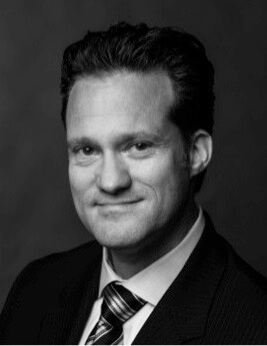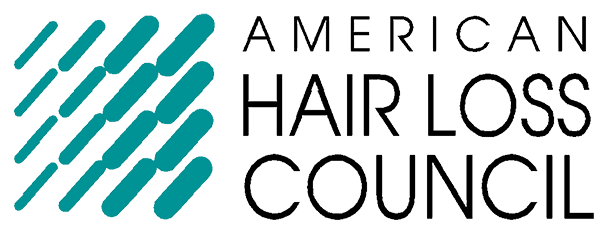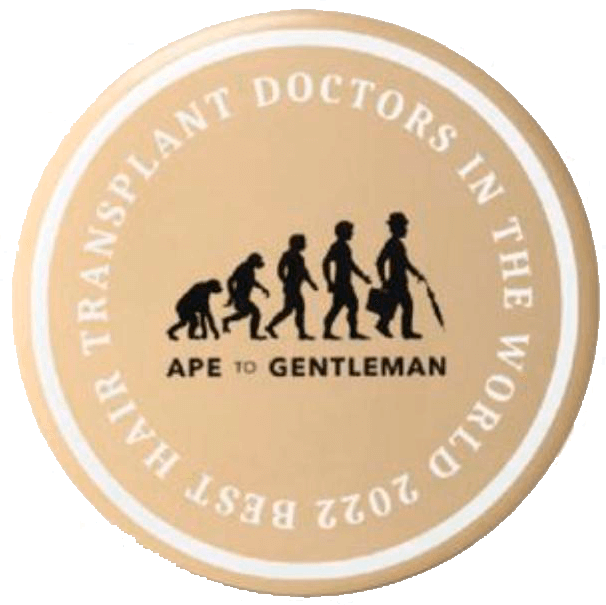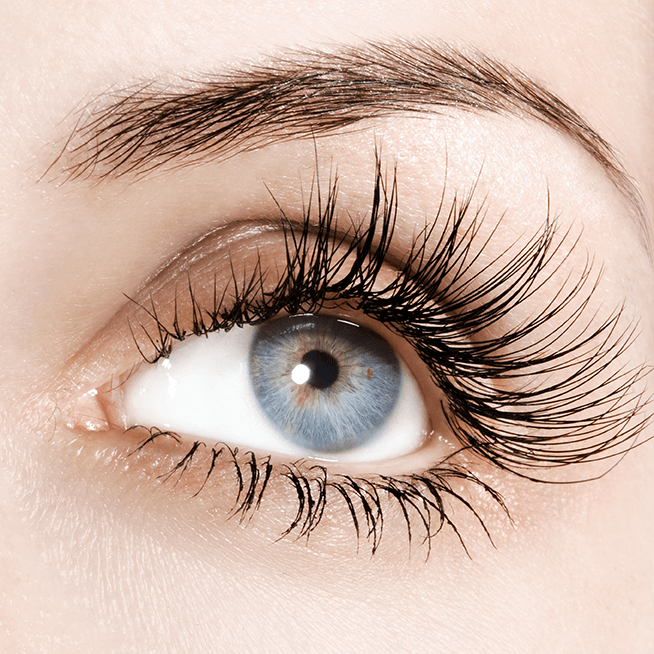How Do Diet and Nutrition Affect Hair Growth and Hair Loss?
Summary: Prominent hair loss expert Dr. Alan J. Bauman warns consumers to avoid crash diets for weight loss – one tell-tale sign is sudden, dramatic hair loss that can take up to a year or longer to correct.
Boca Raton, Florida – The first few months of every year are often referred to as ‘weight loss season’ among physicians – as countless Americans turn to extreme diets to meet New Year’s resolutions or to lose the extra pounds they packed on during the holiday season. But, as Alan J. Bauman, M.D. explains, what many men and women don’t realize is that so-called ‘crash dieting’ for weight loss isn’t just bad for the body, it can also lead to significant hair loss.
“We see this every year around February, like clockwork,” said Dr. Bauman, a board-certified hair restoration surgeon and national hair science consultant for health care and consumer products companies. “Four to six weeks after the start of a crash diet, major shedding can occur throughout the frontal, temples, and crown of the head. It’s a condition known as telogen effluvium – in this case, caused by a steep drop in nutrients to the body, which forces some hair follicles to shed their hair strands and go into a prolonged resting phase during which time no new hairs are grown. Fortunately for patients, this condition is usually temporary, but it can still take six to 10 months for the hair to return back to normal. The condition can be frightening for many people, particularly younger women, so it’s important that people understand its causes and prognosis.”
Each year starting in February, Bauman and other hair loss specialists and dermatologists see an influx of new patients concerned about sudden hair loss resulting from New Year-inspired crash diets. According to Bauman, many patients falsely believe that the shedding or hair loss will stop as soon as they end their diet, which he calls a dangerous misconception. “The reality is that it’s going to take a few months to see all the shedding, then a minimum of six months for the body to stabilize and the hair follicles to return to normal operation; but, for some, the loss may be permanent,” he cautioned, “especially in those people who have a tendency toward genetic hair thinning.”
Because there is a risk for long-term or even permanent hair loss, Bauman advises those patients who begin to experience shedding, thinning, or decreased hair volume or coverage to consult with a full-time board-certified Hair Restoration Physician who can help assess the risks for hereditary hair loss, as well as scientifically track and monitor the hair’s progress and prescribe a course of treatment in more severe cases. Similar to hair loss associated with childbirth and menopause, a readily treatable tendency toward permanent hereditary hair loss may be revealed by this typically temporary situation.
What are some other nutritional triggers for hair shedding and hair loss?
- Crash Diets
- Weight loss Medications
- Bariatric (Weight Loss) Surgery
- Intermittent Fasting, Time Limited Feeding, and Multi-day Fasting Routines
What Weight Loss Medications (e.g. Wegovy, Ozempic) Can Cause Hair Loss?
At Bauman Medical, we’ve seen a recent surge of patients on FDA-approved weight loss medications like Wegovy (semaglutide) or those used off-label like Ozempic (semaglutide) that are now struggling with new, and often very sudden, hair loss concerns. Appetite suppressive medications help patients lose weight by decreasing their caloric intake. The highly metabolic cell population within each of the nearly 150,000 hair follicles on your scalp is very sensitive to changes in nutrition and caloric intake. If there is a sudden drop in caloric intake (especially protein) or nutrients, hair follicles may enter their resting phase prematurely, causing a synchronized or significant shed of hair.
Below you will find a table of weight loss medications that may trigger hair loss:
|
Medication |
Dosage form |
How it works |
|
Contrave (naltrexone/bupropion) |
Tablet |
Lowers appetite |
|
Qsymia (phentermine/topiramate ER) |
Capsule |
Lowers appetite, helps you feel full |
|
Orlistat (Alli, Xenical) |
Capsule |
Blocks fat absorption from your diet |
|
Phentermine (Adipex-P, Lomaira)* |
Tablet or capsule |
Lowers appetite |
|
Tablet or capsule |
Lowers appetite |
|
|
Tablet |
Lowers appetite |
|
|
Tablet |
Lowers appetite |
|
|
Wegovy (semaglutide) |
Injection |
Lowers appetite and food intake |
|
Saxenda (liraglutide) |
Injection |
Lowers appetite and food intake |
|
Imcivree (setmelanotide) |
Injection |
Used only to treat certain genetic conditions, lowers appetite, increases energy use |
What are other off-label weight loss medications that can trigger hair loss? These are some top examples:
- Metformin
- Tirzepatide (Mounjaro)
- Trulicity (dulaglutide)
- Ozempic (semaglutide)
- Pramlintide (Symlin)
- Topiramate (Topamax)
- Bupropion (Wellbutrin SR, Wellbutrin XL)
- Zonisamide (Zonegran)
Does Bariatric Surgery Cause Weight Loss?
According to the American Society for Metabolic and Bariatric Surgery (ASMBS) or the International Federation for the Surgery of Obesity and Metabolic Disorders (IFSO), it is estimated that around 250,000 to 500,000 bariatric surgeries are performed worldwide each year. Numerous studies in the scientific literature document the effect of weight loss on many organ systems, including skin and hair. At Bauman Medical, we have seen many patients suffer from hair loss after bariatric surgery.
What kind of weight loss surgeries can trigger hair loss?
- Gastric Banding – Gastric banding involves positioning a device around the stomach, which can be adjusted for tightness as required. This results in an increased sensation of fullness during meals, ultimately reducing the speed and quantity of food consumed.
- Gastric Sleeve – The gastric sleeve procedure entails surgically reducing the stomach’s size, which in turn slows down and decreases food intake.
- Gastric Bypass – Commonly known as the Roux-en-Y procedure, gastric bypass is a complicated surgery that reduces the size of the stomach and reconfigures the intestines to limit caloric absorption.
Careful nutritional guidance and hair growth treatments are often needed in hair loss patients with weight loss surgery.
What can be done about hair loss triggered by weight loss?
Dr. Bauman recommends a complete evaluation to measure, monitor, and appropriately treat hair loss. This all starts with a consultation and evaluation appointment either in-office or virtually (at home or by phone) via a video call.
Track Hair Loss Using HairCheck™ Monitoring:
The HairCheck device is one of the many tools being used by Bauman and his team to determine the extent of damage to a patient’s hair. HairCheck is a simple, painless, non-invasive way to measure and track the amount of hair growing in a given area of the scalp (called the Hair Mass Index or “HairNumber”). The highly sensitive hand-held ‘trichometer’ measures hair caliber and hair density together and expresses them as a single number. It can also measure the percentage of hair breakage, a common cause of hair loss. Tracking these numbers over time can help determine the extent and rate of a patient’s hair loss and/or breakage and inform them of any changes. HairCheck can also quantify the degree of hair breakage from harsh hair care regimens or hair loss from extreme diets.
“The data we collect provides consumers with actionable information by combining scientific hair tracking measurements with a series of non-invasive, easy-to-follow hair improvement plans and options,” explained Bauman.
Dr. Bauman’s Nutrition Tips for Healthy Hair:
While the HairCheck and other tools allow doctors to better understand the damage a patient’s hair has suffered, the best way to protect the hair is through preventative measures. One of the simplest preventative actions consumers can take is a healthy diet, which gives the hair the vitamins and nutrients it needs.
“Everyone knows that what you eat greatly affects your health, but people too often overlook that the same is true for your hair,” Bauman advised. “Whether you want to reduce the risk of shedding or increase your hair’s fullness, shine, or thickness, the first step to achieving healthy hair is eating well and maintaining a balanced diet.”
Caloric, iron, and protein deficiencies are among the most common nutritional triggers for unhealthy hair, while vitamins, especially B, are important to the overall health of your hair and preventing hair loss and thinning.
Some of the best food choices for healthy hair include salmon, which is loaded with omega-3 fatty acids, dark green vegetables for vitamins A and C, and nuts, which are a terrific source of zinc, which can prevent hair shedding.
Many women take calcium supplements to improve their health – but the same should also be true for hair supplements. Scientifically developed treatments like Viviscal Pro and Biotin (also known as ‘Vitamin H’ or B7) support the growth of thicker, healthier hair.
For patients with clinically diagnosed hair loss or thinning, patients may want to investigate Dr. Bauman’s proprietary Wellness System for Hair, which includes specific nutritional supplements designed to improve the appearance of hair. Preventative medical treatments like finasteride (i.e., Propecia), minoxidil (i.e., Rogaine or prescription Formula 82M), PRP Platelet-Rich Plasma, and low-level laser therapy should be considered. Serious cases may also require microsurgical hair transplantation using FUE. To learn more about hair loss facts and modern medical treatments, visit http://www.BaumanMedical.com.
###
*Each individual's treatment and/or results may vary
If you or someone you know has hair loss, hair thinning, baldness, or eyebrow / eyelash concerns, click to start either a long-distance virtual consultation OR an in-person, in-office consultation with Dr. Bauman. You can also Ask Dr. Bauman a Question or simply call Bauman Medical Group at +1-



![Can Weight Loss [from Drugs, Diet, etc.] Cause Hair Loss?](https://www.baumanmedical.com/wp-content/uploads/2023/03/how-to-avoid-hair-loss-from-weight-loss-750x563.png)
 What are the best nutrients for hair regrowth?
What are the best nutrients for hair regrowth? Score a touchdown for your hair health with this 🏈🐬
Score a touchdown for your hair health with this 🏈🐬 I’ve got a Gut Feeling this may help your hair…
I’ve got a Gut Feeling this may help your hair… This “Dream Team” gives you fuller hair
This “Dream Team” gives you fuller hair Dr. Alan J. Bauman, M.D.Hair Loss & Hair Transplant ExpertBoca Raton, FL
Dr. Alan J. Bauman, M.D.Hair Loss & Hair Transplant ExpertBoca Raton, FL







Comments are closed here.